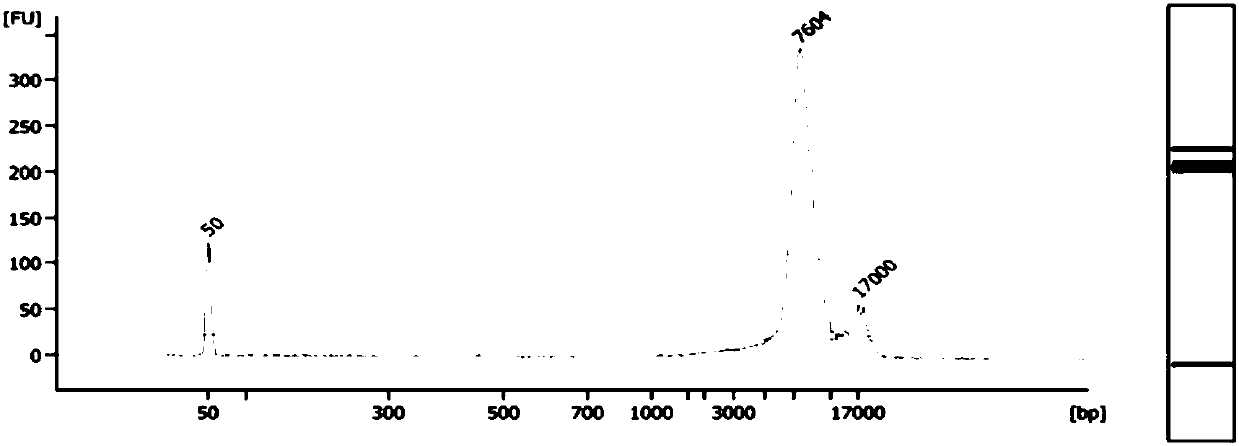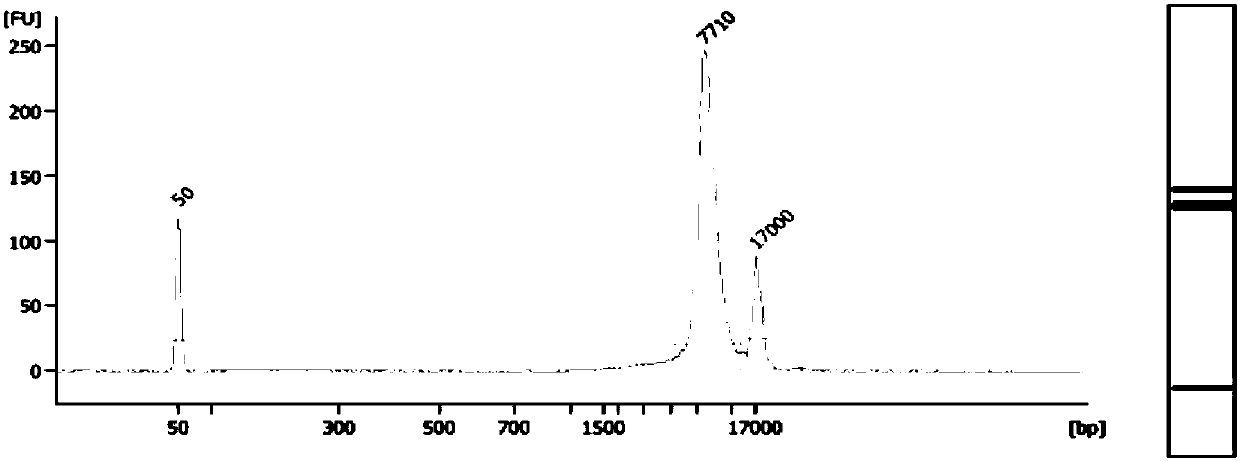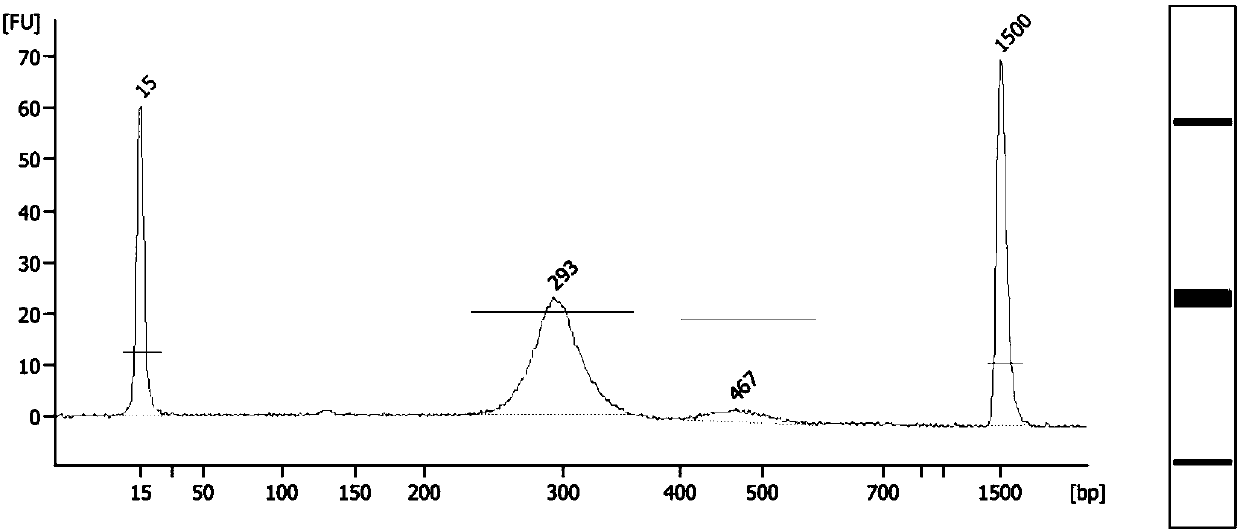Method and system for determining fetus alpha thalassemia gene haplotype
A thalassemia and haplotype technology, applied in biochemical equipment and methods, microbial measurement/testing, etc., can solve the problems of difficult sampling, unable to detect maternal mutations, and small number of detection sites. Achieve the effects of avoiding bleeding, strong practicability, and simple samples
- Summary
- Abstract
- Description
- Claims
- Application Information
AI Technical Summary
Problems solved by technology
Method used
Image
Examples
Embodiment 1
[0172] 1. Prepare the chip for alpha thalassemia gene hybridization capture
[0173] Determine the region where the common alpha thalassemia is located, and the preferred region is the alpha thalassemia region from 60001 to 434700 on chromosome 16.
[0174] To remove repeated fragments, the preferred method is to remove regions with more than 100 repeated fragments, that is, if a certain fragment can be compared to more than 100 regions on the chromosome, then remove these fragments.
[0175] To obtain a chip for thalassemia hybridization capture, the preferred method is a liquid phase capture chip.
[0176] At the same time, the PCR method can be used to amplify and enrich the long fragments, and the PCR method can be used as a supplementary method to assist the chip in capturing the target region.
[0177] 2. Construction of the third-generation library
[0178] a. Sample preparation: Obtain blood samples from the fetal father and mother, and extract whole-genome DNA fragm...
Embodiment 2
[0253] Non-invasive thalassemia detection was performed on 1 patient, the father and mother of this case were both -- sea Carrier of the mutation, the fetus is-- sea homozygous mutation.
[0254] 1. Collection and processing of father and mother samples
[0255] Using Streck blood collection tubes, 5 mL of peripheral blood was collected from the father and mother according to the standard peripheral blood collection operation. After the collection, the peripheral blood of the father and mother was separated in time according to the standard two-step centrifugation method.
[0256] 1.1 DNA extraction from plasma
[0257] The TIANamp Micro DNA Kit was used to extract the free DNA from the mother's peripheral blood plasma. The specific operation steps are as follows:
[0258] 1.1.1 Take 600 μL of the peripheral blood plasma of pregnant women into a 2 mL centrifuge tube, add 20 μL of Proteinase K solution, shake and mix well, and centrifuge briefly.
[0259] 1.1.2 Add 600 μL ...
PUM
 Login to View More
Login to View More Abstract
Description
Claims
Application Information
 Login to View More
Login to View More - R&D
- Intellectual Property
- Life Sciences
- Materials
- Tech Scout
- Unparalleled Data Quality
- Higher Quality Content
- 60% Fewer Hallucinations
Browse by: Latest US Patents, China's latest patents, Technical Efficacy Thesaurus, Application Domain, Technology Topic, Popular Technical Reports.
© 2025 PatSnap. All rights reserved.Legal|Privacy policy|Modern Slavery Act Transparency Statement|Sitemap|About US| Contact US: help@patsnap.com



